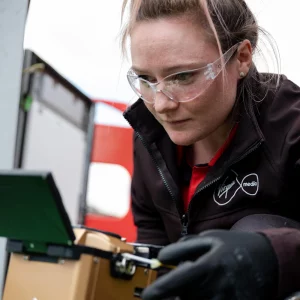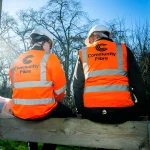Sponsored Links
ISP Timico Tech Chief Attacks Scandalous UK Broadband and Phone Migration Delays
Posted: 06th Jul, 2010 By: MarkJ
 The Chief Technology Officer for business ISP Timico UK, Trefor Davies, has attacked several well known failings within BT Openreach's broadband and telephone line migration system. The problems, which Davies calls "anti-competitive", can lead to higher consumer costs and delays of roughly two weeks when switching to a new provider.
The Chief Technology Officer for business ISP Timico UK, Trefor Davies, has attacked several well known failings within BT Openreach's broadband and telephone line migration system. The problems, which Davies calls "anti-competitive", can lead to higher consumer costs and delays of roughly two weeks when switching to a new provider.Most people are probably already aware of Ofcom's General Condition 22 (GC22) rule, which mandates that all ISPs must supply a Migration Authorisation Code (MAC) within 5 working days of request and free of charge (see our 'ISP Complaints and Advice' section). This means that customers cannot be held to ransom (prevented from leaving) for any reason. It also makes it easy to move between BT based ISPs or switch on to shared and fully (MPF) unbundled ( LLU ) providers.
However the MAC system runs into problems when you try to move away (outbound migration) from fully unbundled lines with Sky Broadband , TalkTalk and other similar providers (i.e. not fully supported). The situation is exasperated if you also need to move your telephone line at the same time and want to keep your number.
Timico's Trefor Davies said:
"If consumers want to move away from an incumbent telco (for incumbent read slow moving, lacking innovation and expensive) and want to keep their phone number – I’ve had mine for 23 years – they therefore have to go through the pain of losing their telephony and broadband services for up to 11 working days. That’s potentially 15 non working phone days adding a couple of weekends into the equation.
Moreover a “cease and re-provide” costs £105 if my memory serves me right. Who would do it? You would have to be pretty desperate. Reality this is an anti-competitive situation that is actually harming consumers and all because Openreach has been dragging its heels on looking at processes that could fix the situation."
"If consumers want to move away from an incumbent telco (for incumbent read slow moving, lacking innovation and expensive) and want to keep their phone number – I’ve had mine for 23 years – they therefore have to go through the pain of losing their telephony and broadband services for up to 11 working days. That’s potentially 15 non working phone days adding a couple of weekends into the equation.
Moreover a “cease and re-provide” costs £105 if my memory serves me right. Who would do it? You would have to be pretty desperate. Reality this is an anti-competitive situation that is actually harming consumers and all because Openreach has been dragging its heels on looking at processes that could fix the situation."
When the MAC system was first introduced the market was still very much dominated by BT lines, although it has since become the preserve of unbundled providers. Many of these have now switched the majority of their lines to a fully unbundled platform, putting almost total control of your telephone and broadband in the hands of a non-BT ISP.
The result is a market where many people feel trapped by the high costs and downtime that can be incurred when attempting to switch away from a fully unbundled ISP. Often the easiest solution is to switch back to BT first, which is likely to lock your telephone line into a very lengthy contract and leave you without broadband for even longer (unless you pick BT for that too).
This issue has been highlighted many times before, although Ofcom and BT Openreach have done little to find a solution. Admittedly a fully LLU service has its own hardware controlling the line, which makes it technically difficult to offer a smooth migration and would probably always carry an extra cost, but we are sure they could find a way to do it without such a lengthy loss of service.
Some bundled (voice and broadband) ISPs will let you request a Linked Order Reference Number (LORN) for your broadband and phone line, which allows migration from an MPF ISP and gets both services back online sooner. However ISPs rarely make details about this process clear.
Davies has called on anybody who is planning to attend BT Openreach's Copper Products Commercial Group Meeting on 14th July 2010 to raise the issue.
Search ISP News
Search ISP Listings
Search ISP Reviews
Latest UK ISP News








Cheap BIG ISPs for 100Mbps+
150,000+ Customers | View More ISPs
Cheapest ISPs for 100Mbps+
Modest Availability | View More ISPs
Latest UK ISP News
Helpful ISP Guides and Tips
Sponsored Links
The Top 15 Category Tags
- FTTP (6802)
- BT (3881)
- Politics (3075)
- Business (2767)
- Openreach (2663)
- Building Digital UK (2512)
- Mobile Broadband (2475)
- FTTC (2142)
- Statistics (2128)
- 4G (2092)
- Virgin Media (2025)
- Ofcom Regulation (1779)
- 5G (1732)
- Fibre Optic (1604)
- Wireless Internet (1595)
Sponsored
Copyright © 1999 to Present - ISPreview.co.uk - All Rights Reserved - Terms , Privacy and Cookie Policy , Links , Website Rules






























